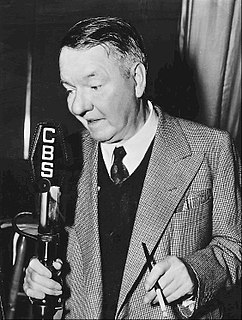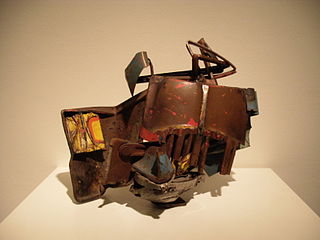A Quote by Joy Davidman
Can we reasonably expect happiness from an insatiable appetite which, no matter how it stuffs its belly, is still psychologically like Oliver Twist in the poorhouse, holding up an empty bowl and begging, "I want some more"? Isn't it possible that our dream of the good society contained, from the beginning, a hidden violation of the Tenth Commandment "Thou shalt not covet thy neighbor's goods"?
Quote Topics
Related Quotes
Owe no man any thing, but to love one another: for he that loveth another hath fulfilled the law. For this, Thou shalt not commit adultery, Thou shalt not kill, Thou shalt not steal, Thou shalt not bear false witness, Thou shalt not covet; and if there be any other commandment, it is briefly comprehended in this saying, namely, Thou shalt love thy neighbour as thyself.
Beneficence is a duty. He who frequently practices it, and sees his benevolent intentions realized, at length comes really to love him to whom he has done good. When, therefore, it is said, "Thou shalt love thy neighbor as thyself," it is not meant, thou shalt love him first and do him good in consequence of that love, but, thou shalt do good to thy neighbor; and this thy beneficence will engender in thee that love to mankind which is the fulness and consummation of the inclination to do good.
I am convinced that the moment is coming when, with its message of eternal, universal values, it will come to the aid of our society. For in these words: "Thou shalt not kill; Thou shalt love thy neighbor as thyself," lie those very moral principles that will enable us to survive even the most critical situations.
Wouldst thou know the lawfulness of the action which thou desirest to undertake, let thy devotion recommend it to Divine blessing: if it be lawful, thou shalt perceive thy heart encouraged by thy prayer; if unlawful, thou shalt find thy prayer discouraged by thy heart. That action is not warrantable which either blushes to beg a blessing, or, having succeeded, dares not present a thanksgiving.
I know that I shall have lost to the jungle if I take a weak moral standpoint or relax my mental punctiliousness. I have therefore come to a certain belief which is based on three powerful effective commandments: THOU SHALT BE ENTERTAINING AT ALL TIMES. THOU SHALT OBEY THY ARTISTIC CONSCIENCE AT ALL TIMES. THOU SHALT MAKE EACH FILM AS IF IT WERE THY LAST.
Nevertheless, the Tenth Commandment-'Thou shalt not covet'-recognizes that making money and owning things could become selfish activities. But it is not the creation of wealth that is wrong, but love of money for its own sake. The spiritual dimension comes in deciding what one does with the wealth. How could we respond to the many calls for help, or invest for the future, or support the wonderful artists or craftsmen whose work also glorifies God, unless we had first worked hard and used our talents to create the necessary wealth?
The Republican Party is doubling down on this trickle-down theory that says, 'Thou shalt concentrate wealth at the very top of our society. Thou shalt remove regulation from wherever you find it, even on Wall Street. And thou shalt keep wages low for American workers so that we can be more competitive.'






































